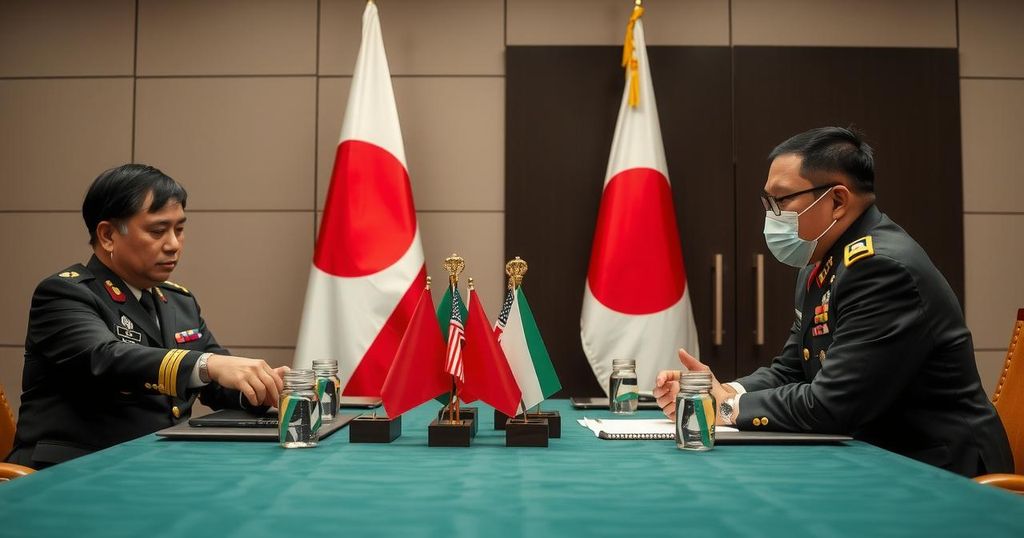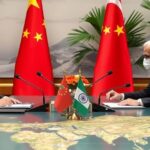Politics
ASIA, ASSOCIATION OF SOUTHEAST ASIAN NATIONS, BILATERAL COOPERATION, BILATERAL RELATIONS, BOGOR, CHINA, CLEAN ENERGY, COAL, GLOBAL SOUTH, GREEN ENERGY, INDO - PACIFIC, INDONESIA, IS, ISHIBA, JAKARTA, JAPAN, MALAYSIA, MEXICO, NORTH AMERICA, PRABOWO SUBIANTO, SHI, SHIGERU ISHIBA, SOUTH CHINA SEA, SOUTHEAST ASIA, STRAIT OF MALACCA, TOKYO
Omar El-Sharif
Japan and Indonesia Strengthen Security Cooperation Amid Rising Chinese Influence
Japan and Indonesia convened a summit to bolster security cooperation amid rising Chinese influence in the Indo-Pacific region. The leaders are expected to finalize plans for Indonesia to receive high-speed patrol boats and arrange a ministerial dialogue. Prime Minister Ishiba’s Southeast Asia visit underscores Japan’s commitment to strengthening ties with ASEAN nations critical for regional peace and stability.
Japan and Indonesia convened at a summit on Saturday aiming to enhance their security collaboration amidst the escalating influence of China in the Indo-Pacific region. The discussions, held in Bogor, south of Jakarta, involved Japanese Prime Minister Shigeru Ishiba and Indonesian President Prabowo Subianto, who are expected to finalize an agreement for Indonesia to acquire two high-speed patrol boats from Japan. This initiative aligns with Tokyo’s strategy to reinforce relationships with allied nations through the sharing of defense resources.
Furthermore, the leaders are projected to arrange a “two-plus-two” ministerial meeting, which will involve their respective foreign and defense ministers, marking the third occurrence of such a dialogue, following the most recent meeting in 2021. Prime Minister Ishiba, who assumed office in October, is concluding his Southeast Asian tour, which also included Malaysia, to fortify alliances critical for a rules-based, free, and open Indo-Pacific.
Japan regards its partnerships with member nations of the Association of Southeast Asian Nations (ASEAN) as pivotal due to their geographic closeness to the South China Sea, a vital maritime route for global trade. With its ambition to lead emerging and developing economies in the Global South, Indonesia holds significant importance for Japan. Since 2021, both nations have operated under a bilateral agreement concerning the exchange of defense equipment and technology, recognizing each other as comprehensive strategic partners that endorse similar democratic values.
Indonesia, abundant in resources and positioned along the Strait of Malacca, serves as a crucial shipping corridor for energy and goods. In related diplomatic efforts, Ishiba, during his visit to Malaysia on Friday, reached consensus with Malaysian Prime Minister Anwar Ibrahim on collaborative efforts to ensure regional security and the integrity of supply chains. This represents Prime Minister Ishiba’s inaugural overseas trip focused exclusively on bilateral summitry.
The growing geopolitical tensions in the Indo-Pacific region, particularly due to the assertive actions of China, have prompted nations like Japan and Indonesia to seek closer security ties. Japan, under the leadership of Prime Minister Shigeru Ishiba, seeks to fortify relationships with ASEAN members in light of their proximity to strategic maritime routes, particularly the South China Sea. The evolving dynamics necessitate cooperation on defense and regional stability, making partnerships with resource-rich nations like Indonesia crucial for Japan’s security strategy.
In summary, the summit between Japan and Indonesia marks a significant step towards reinforcing security ties in light of regional instability posed by China. By discussing defense cooperation and scheduling future ministerial engagements, both nations aim to strengthen their strategic partnership. The emphasis on joint efforts to maintain a free and open Indo-Pacific highlights the importance of collaborative security frameworks in addressing current geopolitical challenges.
Original Source: english.kyodonews.net








Post Comment